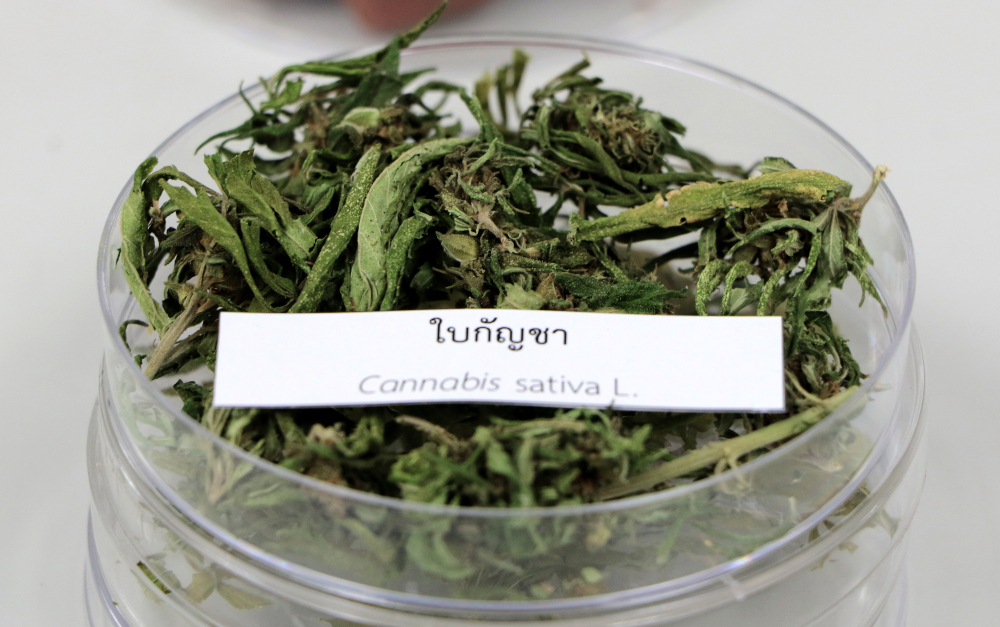Cannabis is the plant from which Marijuana, a psychoactive drug, is derived. Its main active compound is delta-9-tetrahydrocannabinol (THC), which gets you ‘high’. Nearly 4% of the global population was using cannabis in 2015. In recent years, many western countries like the US and Canada, have legalised or decriminalised the use of cannabis both for recreational and medical purposes. Recently, it has made the news again as Thailand becomes the first Asian country that legalises the use of cannabis, removing it from its narcotics list. This article will bring you all you need to know about marijuana and its medical use.
What are the effects of marijuana?
When used in small amounts, the immediate effect of marijuana include:
- A feeling of relaxation or euphoria
- Loss of social inhibition (similar effect to alcohol): more talkative, more sociable etc.
- Reduced concentration
- Drowsiness
- Reduced coordination; dangerous to drive or operate heavy machinery
- Anxiety or paranoia
- Increased heart rate and appetite
When used in large amounts, more chronic effects include:
- Chronic anxiety
- Psychotic episodes: detachment from reality
- Restlessness
- Confusion
Addiction can happen with marijuana, irrespective of the purpose of use. Studies show about 1 in 10 adults who use marijuana can get addicted. And the chances go up to 1 in 6 if used before age 18.
What is medical marijuana?
Other than recreational purposes, which are well known to the public, it does have pharmaceutical use. The primary medical indications of cannabis are to relieve symptoms rather than cure diseases.
Currently, most research and evidence on medicinal cannabis products have come from five clinical conditions – multiple sclerosis, palliative care, epilepsy, nausea and vomiting, and chronic non-cancer pain. Overall, it reduces chronic neuropathic pain, and seizure activity and might be able to increase the quality of life for palliative patients.
Why did Thailand’s legislation make international news?
On 14 Jun 2022, Thailand became the first country in Asia to legalise cannabis, with strong discouragement for personal uses as an official guideline. This is another step forward, from its radical move in 2018 when Thailand also made headlines for legalising marijuana for medical use. Thailand’s actions have garnered much attention as Asian countries traditionally have the harshest laws in place for illegal drug use and trafficking, with many, carrying the maximum death sentence.
As of 2022, only a few countries in the world legalise and decriminalise recreational cannabis use, including some states in the US, Canada, Mexico, South Africa and Uruguay. Many more countries have legalised its medical use. This includes most of the European and South American countries, Australia, New Zealand and some African countries.
What are the reasons for Thailand legalising cannabis?
The first reason involves improving tourism with marijuana’s inclusion in their foods and beverages. Many will find it hard to overcome the allure of consuming a “banned substance” legally as restaurants start to offer marijuana-infused dishes and drinks on their menu. But this is with measures in place that allows only less than 0.2% of the active ingredient (THC) to be present.
Secondly, is to improve the agriculture sector while matching its rising demand. The Thai government even handed out a million cannabis seedlings to the public to encourage them to start growing their own – with a permit.
The last reason might seem contentious, but there have been talks that with this new legislation, 4,000 convicts in overcrowded Thai jails will be released. And there will be no reason to lock up people simply for the possession of marijuana, which was previously the case.
What are the implications of legalising cannabis?
Over the past decades, we have seen more and more countries legalise or decriminalise the use of cannabis, at least for medical purposes. Internationally, though the first country in Asia, Thailand being a small economy without much political influence over Asia can hardly play much of a role in attracting its peer countries to do the same. However, Thailand is definitely hoping to dominate the region with access to medical marijuana. Over the next few years, it would be interesting to pay attention to other Southeast Asian countries and see how this move affects the rest.
But if you’re thinking that smoking marijuana in public without anyone batting an eyelid is possible, your action could still warrant an arrest under the Public Health Act. Because smoking cannabis emits a distinctive smell that is considered a public nuisance.
How to prevent abuse?
As mentioned above, cannabis does have a potential risk of having people ‘hooked’, a state in which people cannot stop using. Medically, this is known as cannabis use disorder (CUD). Among the 4% of the global population that uses cannabis, 1 in 10 experience addiction, of which 1 in 5 begin using as teenagers. Scientists are not exactly sure why cannabis can cause addiction, but the hypothesis is that it alters the brain’s neurological circuitry. Here are some of the common signs you should look out for:
- Bloodshot eyes
- Chronic anxiety or paranoia
- Lack of motivation and finding life meaningless – including thoughts of suicide
- Memory impairment
- Frequent panic attacks
- Consuming more than intended
- Unable to cut down on the intake
- Continuing to use it despite its negative influence on life
It’s important to know that this is a medical condition where treatment is available. Acute withdrawal can bring on unwanted symptoms including irritability, depression, restlessness etc. Medically tailored withdrawal is the best option to reduce the risk of having those symptoms or having future relapses. Understand the importance of discussing this with lawyers and medical doctors.
Conclusion
As a recreational drug, cannabis is getting more and more socially accessible and acceptable over the past decades. And it is highly likely more countries will legalise and decriminalise the use of cannabis in the coming decades. Thailand’s legislation is a hopeful sign for those who believe drug abuse is a medical instead of a legal issue. However, social consequences such as driving under the influence or criminal conduct under influence are still big topics for debates ahead. Especially when lines are blurred regarding enforcing the content made available in foodstuff. Thailand now will be the first experimenter in Asia and eyes will be on them in the years to come.












